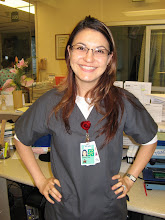
Hi All! Tonight's blog is brought to you from the comfort of room 957, Diamond Head tower, Queen's Hospital. Here beside us is Christy Huddy, a beautiful, strong young lady and she's feeling pretty good tonight. Kaeo is spending the entire night here with Christy and I'm keeping him company for the early part of the night. He's actually on a mission. He's McGyvering Christy's side rail pad. Christy has this heavy duty pad on the side rail of her bed to protect her feet from injury. Christy is kicking hard and lots! The pad gets loose and falls on the ground after she kung fu's it for about 10 minutes. Kaeo decided to tie the straps in a knot and tape it secure. I tried to find a picture of the side pads Christy actually has, but there wasn't one available. Therefore, refer to the one on the right, except imagine it along the length of the bed secured to the side rails. Christy has graduated from the skinny side rail pad to the bombucha thick one! These pads were designed to protect people from injury when they were having seizures. It's one of the things we do in "seizure precautions".
Christy's hair is free of knots, and tied neatly in a bun. Her teeth are brushed and her lips moisturized. She's had her lungs cleaned out when the respiratory therapist came by to suction the mucus out. She's had her trach and PEG cleaned and cared fore, and she's had her pain medicine. She's listening to a little John Mayer from her ipod. She's had her 11pm vital signs done. Blood pressure was 116/73, Heart rate is 70-80's and her oxygen saturation is 98% All normal. She's ready for bed. And since I started writing this paragraph, she's just settled down for a rest. Maybe we can get her sleep-wake cycles in order again. I had someone ask about the The Sleep / Wake Cycle (circadian Rhythm). These are the body's clear cycle of being asleep and awake. I found some more detailed info online about it!
"The body clock comprises a tiny cluster of nerve cells sitting in the hypothalamus, which forms the base of the brain. This group of a few thousand nerve cells switch on and off groups of genes in a feedback loop lasting 24 hours. The expression of these genes alters the activity of the nerve cells which therefore effectively 'keep time'. The time registered by the body clock is then used to control the release of other hormones which are concerned with preparing us for activity or rest respectively, and in controlling the parts of the brain involved with alertness and arousal.
the base of the brain. This group of a few thousand nerve cells switch on and off groups of genes in a feedback loop lasting 24 hours. The expression of these genes alters the activity of the nerve cells which therefore effectively 'keep time'. The time registered by the body clock is then used to control the release of other hormones which are concerned with preparing us for activity or rest respectively, and in controlling the parts of the brain involved with alertness and arousal.
Luckily we don't suffer permanent jetlag when we go abroad because the clock can be reset by exposing our eyes to light. A small number of nerve fibres from a specialised group of light-responsive cells in the retina feed in to the body clock and can adjust the rhythm, according to whether it is light or dark, just as one would alter a wristwatch. This system allows the clock to adapt to changes in day length and the demands of modern-day living, but the system is not perfect and does not kick in immediately, which is why we feel jet-lagged after a long haul flight, or after working a night-shift. The neurologist was commenting the other day that Christy's sleep-wake cycles are out of whack. She would be awake for twenty hours-kicking. Then she would sleep for two. The next time she slept for 17 hours, then up and asleep without any pattern at all. There was no talk of blood clots (thrombo-emboli ) in the hypothalmus part of the brain before on Christy. It may be a problem of damage in that specialized area of ells. Not sure, Dr. Maher didn't explain that far.
"The body clock comprises a tiny cluster of nerve cells sitting in the hypothalamus, which forms
 the base of the brain. This group of a few thousand nerve cells switch on and off groups of genes in a feedback loop lasting 24 hours. The expression of these genes alters the activity of the nerve cells which therefore effectively 'keep time'. The time registered by the body clock is then used to control the release of other hormones which are concerned with preparing us for activity or rest respectively, and in controlling the parts of the brain involved with alertness and arousal.
the base of the brain. This group of a few thousand nerve cells switch on and off groups of genes in a feedback loop lasting 24 hours. The expression of these genes alters the activity of the nerve cells which therefore effectively 'keep time'. The time registered by the body clock is then used to control the release of other hormones which are concerned with preparing us for activity or rest respectively, and in controlling the parts of the brain involved with alertness and arousal.Luckily we don't suffer permanent jetlag when we go abroad because the clock can be reset by exposing our eyes to light. A small number of nerve fibres from a specialised group of light-responsive cells in the retina feed in to the body clock and can adjust the rhythm, according to whether it is light or dark, just as one would alter a wristwatch. This system allows the clock to adapt to changes in day length and the demands of modern-day living, but the system is not perfect and does not kick in immediately, which is why we feel jet-lagged after a long haul flight, or after working a night-shift. The neurologist was commenting the other day that Christy's sleep-wake cycles are out of whack. She would be awake for twenty hours-kicking. Then she would sleep for two. The next time she slept for 17 hours, then up and asleep without any pattern at all. There was no talk of blood clots (thrombo-emboli ) in the hypothalmus part of the brain before on Christy. It may be a problem of damage in that specialized area of ells. Not sure, Dr. Maher didn't explain that far.
"Circadian rhythms are important in determining the sleeping and feeding patterns of all animals, including human beings. There are clear patterns of core body temperature, brain wave activity, hormone production, cell regeneration and other biological activities linked to this daily cycle". Hope this added more information about the sleep-wake cycle, without being too wordy.
All this talking about sleeping is making me sleepy. I'm going to take myself to my comfy bed and allow Kaeo to rest too. Right now we're squished together on the reclining chair in the corner of Christy's room.
Just FYI, Christy's got two rashes. One around her peg sight. Looks like hives from the tape because it's no where else and just in that square of tape. She may be allergic now to that foam tape. It' s been cleaned & redressed with a more sensitive tape called paper tape. The second rash is on her back. It has some pustules and we can't figure out what it is. It looks very different than hives. The resident or the surgeon will be notified to look at it again and consult dermatology. The resident (doctor in training) today ordered a steroid cream for it when the nurse showed him the rash.
Ok. that's all for today, see you tomorrow!
_8290.jpg)
 The reason they want to keep her feet
The reason they want to keep her feet  The problem with this type of foot is that when you are ready to walk on it again, the muscle has shortened & can't be used. It's contracted. A muscle
The problem with this type of foot is that when you are ready to walk on it again, the muscle has shortened & can't be used. It's contracted. A muscle 














 It's band is worn loose around the neck for comfort. The other picture below is a side view of where the
It's band is worn loose around the neck for comfort. The other picture below is a side view of where the 






